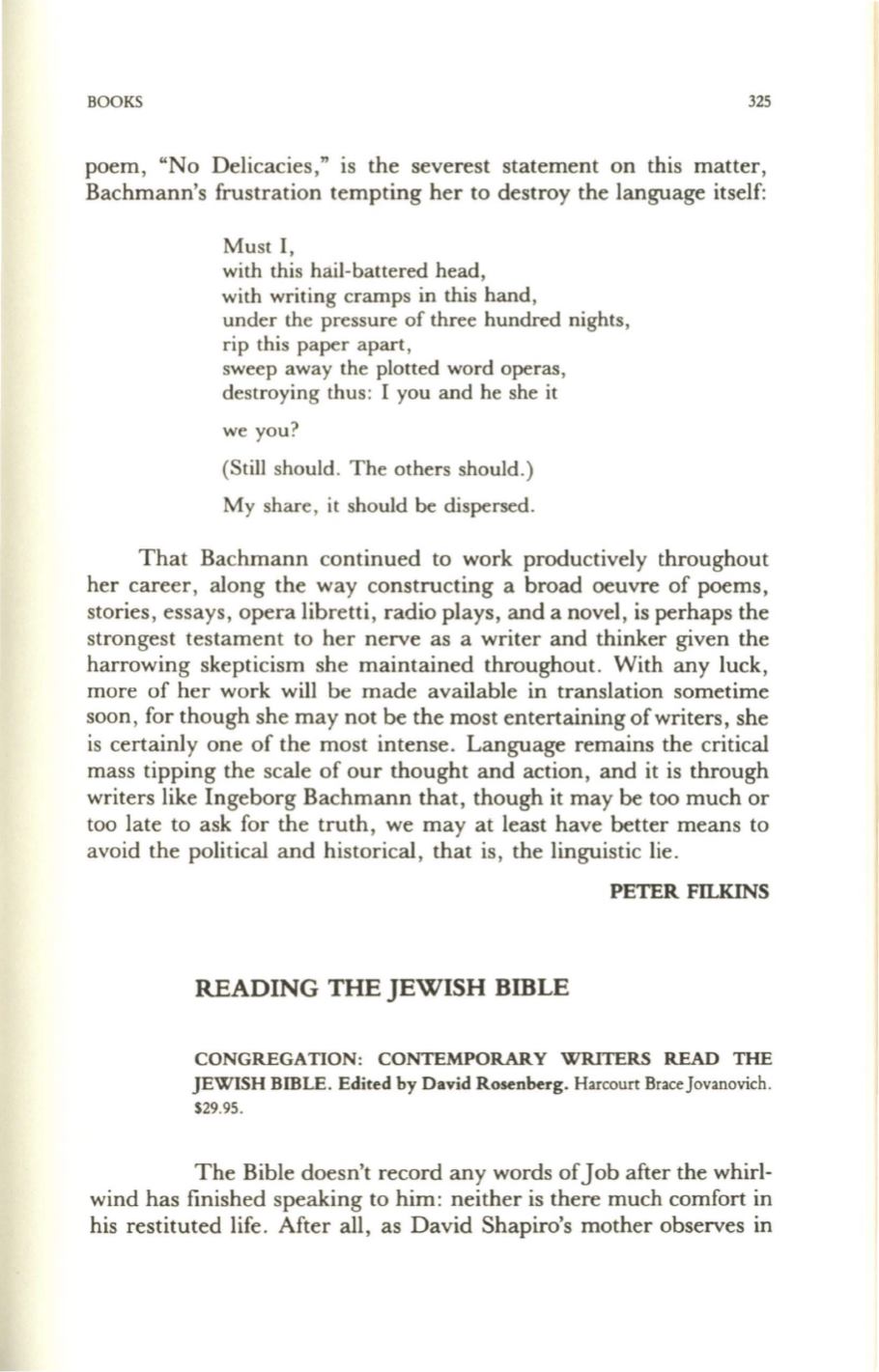
BOOKS
325
poem, "No Delicacies," is the severest statement on this matter,
Bachmann's frustration tempting her to destroy the language itself:
Must I,
with this hail-battered head,
with writing cramps in this hand,
under the pressure of three hundred nights,
rip this paper apart,
sweep away the plotted word operas,
destroying thus: I you and he she it
we you?
(Still should . The others should .)
My share , it should be dispersed.
That Bachmann continued to work productively throughout
her career, along the way constructing a broad oeuvre of poems,
stories, essays, opera libretti, radio plays, and a novel, is perhaps the
strongest testament to her nerve as a writer and thinker given the
harrowing skepticism she maintained throughout. With any luck,
more of her work will be made available in translation sometime
soon, for though she may not be the most entertaining ofwriters, she
is certainly one of the most intense. Language remains the critical
mass tipping the scale of our thought and action, and it is through
writers like Ingeborg Bachmann that, though it may be too much or
too late to ask for the truth, we may at least have better means to
avoid the political and historical, that is, the linguistic lie.
PETER FILKINS
READING
THE JEWISH BIBLE
CONGREGATION: CONTEMPORARY WRITERS READ THE
JEWISH BIBLE. Edited by David Rosenberg. Harcourt BraceJovanovich.
$29.95.
The Bible doesn't record any words ofJob after the whirl–
wind has finished speaking to him: neither is there much comfort in
his restituted life. After all, as David Shapiro's mother observes in


